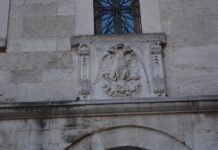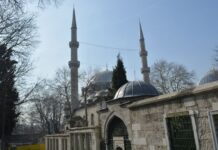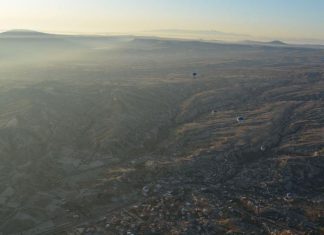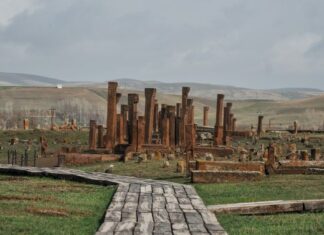The constitution of Independent Bulgaria, known as Tamovo Constitution (16 April 1879), is one of the most democratic in the world at that time. The basic law of the new Bulgarian state declares the people as the sovereign and the monarch – as its plenipotentiary. All citizens have equal rights before the law; there were no class privileges; there was freedom of thought, conscience, speech and press; the individual, his work and property were inviolable; people were granted the right of free assembly and education. The legislative body consists of one Chamber of Representatives elected directly by the people. Constitutional monarchy amasses lawful power through the orders of the head of state only if the ministers, responsible before him and the National Assembly, and before a State Court, sign them. The Exarchate embodies the spiritual union of the nation.
According to unwritten international law, states are small, average and big, and great. But it matters if one lives well in an orderly state, be it not so big on the world political map. The Bulgarian state was restored with the treaty of 1878 between the victorious Russia and the Ottoman Empire. The treaty was signed in the small town of San Stefano not far from Istanbul.
Direction for millions
It is just for the Bulgarians because it drafts the resurrection of a state, spacious for the scale of the Balkans, which included almost all lands of the Bulgarians. Pragmatics defined it as an unachievable dream. But an ideal is like a star – it shows the direction for millions of men. Bulgaria has fought justly for its unification in order to be prosperous economically and powerful internationally. The size of the state is not a goal in itself; it is a necessity for the well being of the majority of the Bulgarians under a common state roof. Bulgaria is a nation state in the spirit of the positive nationalism of the 19th century, without any attempt to include more foreign minorities. In the First World War, the Bulgarian Army did not fight outside the Bulgarian ethnic borders, unlike its neighbours who appeared on faraway “foreign” fronts.
The state is included in all domains of existence and development – economy, politics, culture and defence. The Bulgarians have suffered under foreign domination and they do not favour “too much state” in their lives. They are not expected to love the state because they love their Fatherland. The state is respected only if it deserves it. The form of state structure is not so important; the contents matter – one should live well in it. This philosophy of life is acquired through suffering both in the Kingdom of Bulgaria and in the People`s Republic of Bulgaria, and also today, in the Republic of Bulgaria (although politicians would not fancy this).
Read More about History of Bulgaria part 21








